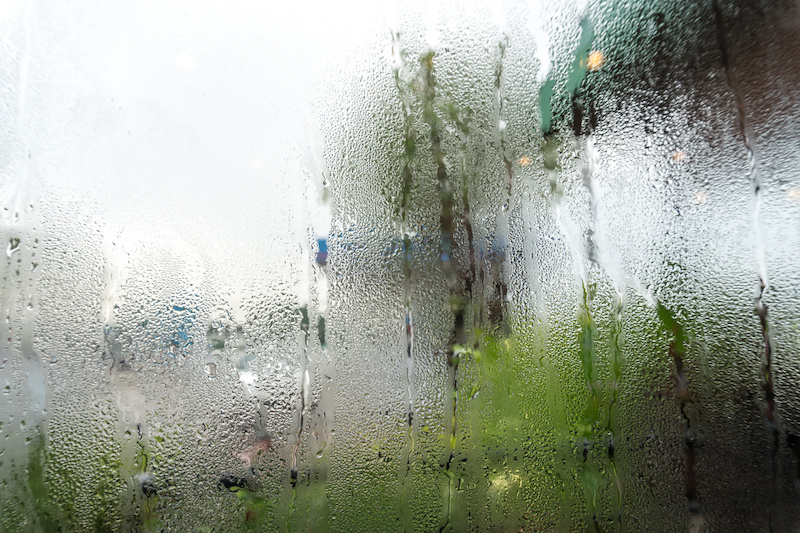Humidity levels in your home can affect your comfort and overall health. High humidity levels can lead to mold growth, musty odors, and damage to your home’s structure, while low humidity levels can cause dry skin, respiratory problems, and static electricity. Here are some ways you can help reduce humidity in your home.
Check your seals
Infiltration occurs when warm, humid air enters your home through gaps and cracks in windows, doors, and walls. Seal any air leaks around doors and windows with weatherstripping and caulking. You can also use foam insulation to seal larger gaps.
Is your HVAC the right size?
An oversized air conditioning unit can cool your home quickly but won’t have enough time to remove moisture from the air. A properly sized air conditioning unit will run longer, allowing it to remove more moisture from the air, resulting in lower humidity levels.
Multi-Stage or Variable Capacity Equipment
Multi-stage or variable-capacity air conditioning units can adjust their output based on your home’s cooling needs. These units run for longer periods, removing more moisture from the air and reducing humidity levels. They also operate more efficiently, reducing your energy bills.
Upgrade your Insulation
Insufficient insulation can cause moisture to seep into your home, leading to higher humidity levels. Make sure your attic and walls are properly insulated to prevent air leaks and moisture from entering your home. Insulation also helps keep your home cool in the summer and warm in the winter, reducing your energy bills.
Other Tips to Reduce Humidity in Your Home
- Use Exhaust Fans: Exhaust fans in your kitchen and bathrooms can help remove excess humidity from these areas. Make sure to run the fan for at least 20 minutes after using the shower or cooking.
- Use a Dehumidifier: A dehumidifier can help remove excess moisture from the air, especially in areas with high humidity levels. Place the dehumidifier in a central location in your home for optimal results.
- Ventilate Your Home: Proper ventilation can help reduce humidity levels in your home. Open windows and doors when the weather permits, and use ventilation fans to circulate air.
- Monitor Your Indoor Plants: Indoor plants can release moisture into the air, contributing to higher humidity levels. Monitor the humidity levels in rooms with plants and reduce watering frequency if necessary.
Reducing humidity levels in your home can help improve your comfort and overall health. Proper insulation, reducing infiltration, properly sized equipment, and multi-stage or variable-capacity equipment can all help reduce humidity levels. Exhaust fans, dehumidifiers, ventilating your home, and monitoring your indoor plants are other ways to reduce humidity. Contact Boer Brothers today if you need help with your air conditioning unit or want to schedule a maintenance appointment.

